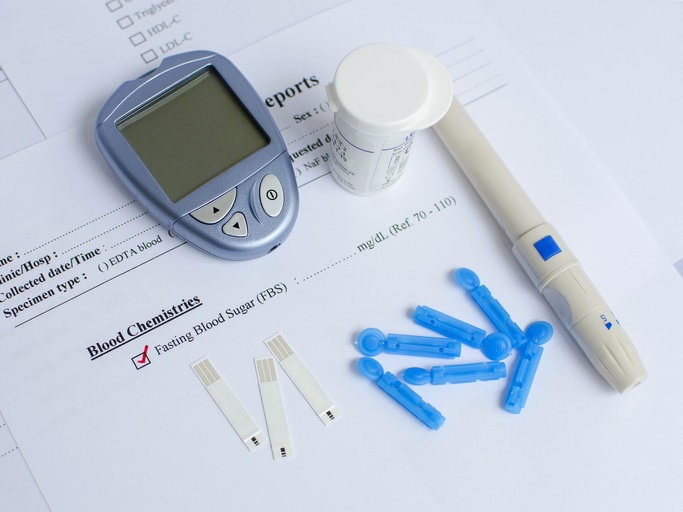
Summer 2023
Editor's Note

It was wonderful to connect with so many of you at the 2023 Annual Meeting in Phoenix. As we head into the summer, it may be a great opportunity to think about some new collaborations and strategies to enhance your productivity (see the article on leveraging Chat GPT). Three topics featured in this issue that may generate new collaborations are climate distress in response to climate change, weaving community engagement in behavioral medicine, as well the meaningful impact of behavioral medicine in the military and veteran population.
The Environmental Toll of Diabetes: The Cost of Managing a Chronic Condition

Diabetes, a serious chronic health condition, affects approximately 37.3 million Americans, or 11.3% of the total population today. All types of diabetes are steadily on the rise with more than 1.5 million American being diagnosed yearly and estimates projecting 1 in 3 adults could have type 2 diabetes by the year 2050 (Centers for Disease Control, 2010).
Measuring Climate Distress


The topic of climate distress, including eco- and climate anxiety, has gained considerable attention in recent years, particularly among younger generations. Climate distress refers to the psychological distress or anxiety caused by concerns about the current and future impacts of climate change (Koder et al., 2023).
Imposter Phenomena

Imposter phenomena are a constellation of experiences that center on feelings of self-doubt and fraudulence (Slank, 2019). When we experience imposter phenomenon we have the sense that we have not earned our status or achievement through our abilities, but rather through deceit or luck.
Infusing Community Engagement in Health Behavior Theory and Research: From Design to Dissemination

Research on health behavior theory has been built on a narrow foundation. Theory and intervention development has in large part, excluded socially marginalized populations with respect to race/ethnicity, socioeconomic status, sexual orientation, gender identity, disability status, and other important elements of identity.
Forest and the Trees: The Roots of Culture Shift in Academic Family Medicine

Primary care in the United States continues to benefit from major healthcare quality organizations calling for more investment in integration (Bierman et al., 2021, Tong et al., 2023). Beginning in 2020, the Accreditation Council for Graduate Medical Education (ACGME) enacted new policies requiring integrated behavioral health care within family medicine residencies and expanded the description of the specialty to highlight the imperative of managing behavioral and psychosocial issues (ACGME, 2023)
Decreasing the Military-Civilian Gap

This year, 2023, marks 50 years of the United States operating with an all-volunteer military force. Since the last draft ended in 1973, the burden of protecting the security of the nation has fallen on fewer and fewer individuals. With fewer people serving, fewer Americans have direct ties to the military through family, friends, or neighbors (Schaeffer, 2021).
Leveraging Artificial Intelligence (AI) to Enhance your Productivity: Current Considerations with ChatGPT

Artificial intelligence (AI), and more specifically, “chatbots”, are popping up all over physical activity science. A recent systematic review concluded that AI interventions are a promising strategy for delivering intervention content, engaging participants in conversations, and persuading participants to do more physical activity1.
Beyond the Ivory Tower: A Guide to Transitioning from Academia to Industry

Considering a move from a career in academia to industry can feel both exciting and daunting. It's a decision that requires careful consideration and preparation. I will discuss what it's like to make this transition and provide some tips for navigating a significant professional shift.
Diversity, Equity, and Inclusion in SBM’s Journals

The editors of Annals of Behavioral Medicine (ABM) and Translational Behavioral Medicine (TBM) have prioritized diversity, equity, and inclusion (DEI) initiatives since before DEI was a common acronym. Progress has been made in publishing special issues on health equity, supporting broader diversity initiatives in the world of publishing, and working to diversify both journals’ associate editors, editorial board members, and reviewers.
New Articles from Annals of Behavioral Medicine and Translational Behavioral Medicine
President's Message: Moving Behavioral Science Upstream

Wow! The 2023 Annual Meeting and Maycember (that time of the year that seems as hectic personally and professionally as December) are in the rear-view mirror by now. It was indeed a busy couple of months. The 2023 conference was a huge success on many levels: attendance up, zooming down, smiles abound.
Upcoming Events:
45th Annual Meeting and Scientific Sessions
March 13 - 16 2024
Philadelphia, PA
